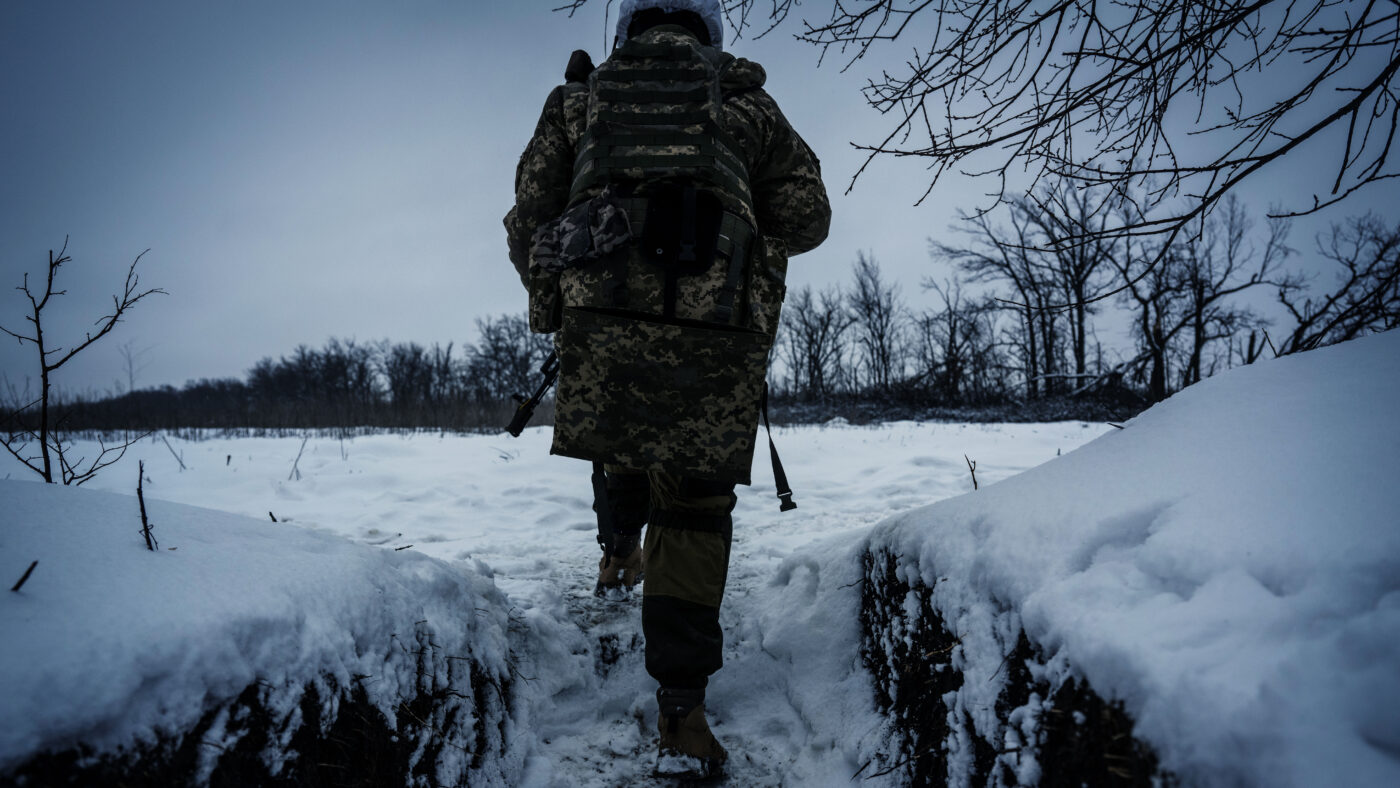The war in Ukraine has now lasted 122 times longer than Vladimir Putin anticipated when he launched an all-out assault on the country just over a year ago. What was meant to be a three-day blitzkrieg has turned into a grinding, attritional conflict where the front lines resemble the trenches of World War 1, albeit with far deadlier hardware.
Despite its people’s astonishing bravery, the war can hardly be said to have gone ‘well’ for Ukraine when millions of its people have fled and tens of thousands died. It’s certainly been a disaster for Russia though. From the mud-stuck convoy outside Kyiv to the sinking of the battleship Moskva and vast losses of men and materiel, this has been a Kremlin clown-show from start to finish. That shouldn’t have come as a huge surprise: an overhyped, undertrained and woefully commanded military exhibits the same flaws as a regime built on lies, subterfuge and corruption.
That the Kremlin continues to prosecute the war reflects two things: the sheer size of its war machine and Putin’s willingness to throw thousands of his own people into a meat grinder. He is Blackadder’s version of Field Marshal Haig, sweeping Russia’s youth into the Donbas dustbin.
In a rambling, mythomaniacal speech this week, Putin made clear he is digging in for the long term. So where does that leave Ukraine?
First, it puts more pressure on them to win as quickly as possible, not least as next year is a presidential election in America. Should Joe Biden lose, there’s no guarantee his successor would provide anywhere near the same military support the US has offered so far. Reports that China is considering sending Moscow arms only make things even more urgent, and risk making an already awful conflict even worse.
Some suggest that the war can only end once Putin himself is gone, be it through a palace coup, ill health or him deciding the game is up and fleeing. But even if Putin did depart in the near future – and it’s a huge if – what follows is anyone’s guess. Does anyone imagine a cuddly, pro-Western social liberal is going to take the reins when Vladimir Vladimirovich is no longer on the scene?
And even in a best-case scenario where Ukraine recaptures all the territory it’s lost since 2014, what will stop Russia regrouping, rearming and reappearing at the border?
President Zelensky wants an international conference to come up with a ‘peace formula’, while Rishi Sunak spoke this week about using July’s Nato summit to build a ‘new charter’ to protect Ukraine from future aggression, though what it entails remains opaque. Nor, despite Biden’s visit to Kyiv, is it clear what America’s intentions are for a longer term settlement.
Bound up with that long-term question is how to rebuild a functioning country once the war is over. Putin’s relentless attacks on civilian infrastructure aren’t just a short-term tactic to weaken the Ukrainians’ resolve, they aim to make swathes of the country unliveable. People struggling for for power, light and heat cannot forge an independent future for themselves.
The cost of reconstruction was put at nearly £350bn last September, and must be far more now. That’s not to be defeatist. A far poorer Western alliance rebuilt much of Europe after the Second World War, but Western politicians should be honest about the scale of the costs involved, not just in rebuilding Ukraine, but in stopping the Russian military darkening their door again.
Click here to subscribe to our daily briefing – the best pieces from CapX and across the web.
CapX depends on the generosity of its readers. If you value what we do, please consider making a donation.


